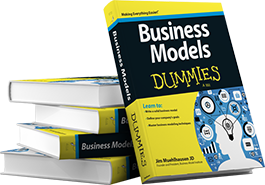Amazon’s Halo Effect
There has been a great deal of positive press regarding Amazon’s acquisition of Whole Foods Market. I think it’s time we explore the possibility that the acquisition may not be as incredible as everyone is expecting.
It seems that Amazon has experienced the halo effect with this acquisition. Wikipedia defines the Halo Effect as “the tendency for an impression created in one area to influence opinion in another area.” Since Amazon has been so incredibly successful at nearly everything they have touched, everyone is assuming Amazon will be just as successful in a retail grocery adventure. Let’s explore the other side of the possibility that this could potentially end badly for Amazon.
- Amazon has little retail experience, and retail is vastly different than warehouse operations. How will the culture of website interactions and box deliveries work in a face-to-face world? Is web merchandising the same as retail merchandising? Will Amazon’s success up-selling online work in a retail store ?
- Amazon has a demanding culture and works warehouse employees hard. Will this yield negative consequences in a retail environment where the customer interfaces with these same employees? At the warehousing level, Amazon uses employees like interchangeable pieces and relies heavily upon temporary firms to fill jobs. Will this culture work for cashiers and customer-interfacing positions?
- Amazon is used to operating on thin margins and being the lowest cost provider. This appears to be the antithesis of the Whole Foods business model. Whole Foods makes money because they sell groceries for significantly more than their competitors. What happens when Whole Foods’ profits plummet as margins are drastically trimmed to match the Amazon model? Is this part of the Amazon plan or will Whole Foods keep margins high? If so, can Amazon run two very different business models simultaneously?
There are many examples where successful companies ventured far afield and learned that success in business #1 does not always equal success in business #2. One of the more prominent examples is Donald Trump, e.g., Trump Vodka, Trump Airlines, Trump Steaks, Trump Magazine, etc. See the entire list of Trump products.
I’m not saying I think the Whole Food acquisition is a bad idea. There are many potential synergies and growth opportunities the merger provides to Amazon. I just think it’s dangerous to assume that the deal is a guaranteed winner simply because it involves Amazon.
Best of luck, Jeff.









